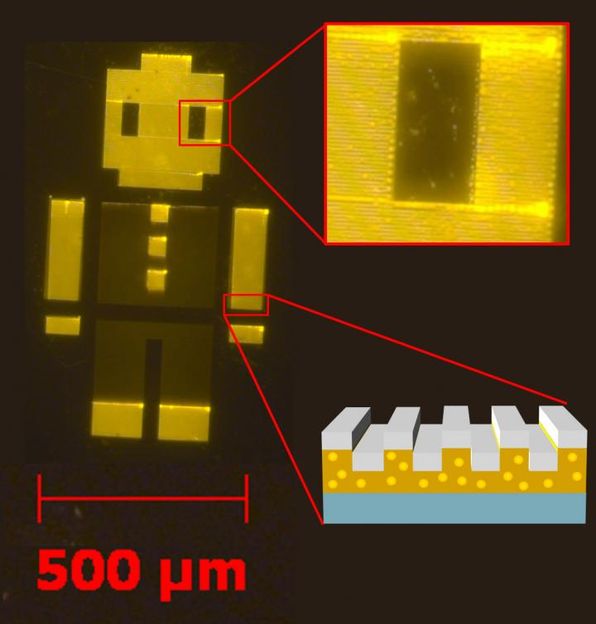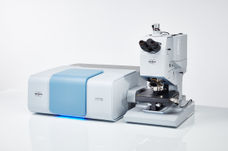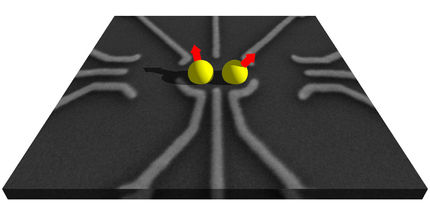New research may enhance display & LED lighting technology
Large-area integration of quantum dots and photonic crystals produce brighter and more efficient light
Recently, quantum dots (QDs) have moved from the research lab into commercial products. However, QDs are expensive to make so there's a push to improve their performance and efficiency, while lowering their fabrication costs.

To demonstrate their new technology, researchers fabricated a novel 1mm device (aka Robot Man) made of yellow photonic-crystal-enhanced QDs. Every region of the device has thousands of quantum dots, each measuring about six nanometers.
Gloria See, University of Illinois at Urbana-Champaign
Researchers from the University of Illinois at Urbana-Champaign have produced some promising results toward that goal, developing a new method to extract more efficient and polarized light from QDs over a large-scale area. Their method, which combines QD and photonic crystal technology, could lead to brighter and more efficient mobile phone, tablet, and computer displays, as well as enhanced LED lighting.
With funding from the Dow Chemical Company, the research team, led by Electrical & Computer Engineering (ECE) Professor Brian Cunningham, Chemistry Professor Ralph Nuzzo, and Mechanical Science & Engineering Professor Andrew Alleyne, embedded QDs in novel polymer materials that retain strong quantum efficiency. They then used electrohydrodynamic jet (e-jet) printing technology to precisely print the QD-embedded polymers onto photonic crystal structures. This precision eliminates wasted QDs.
These photonic crystals limit the direction that the QD-generated light is emitted, meaning they produce polarized light, which is more intense than normal QD light output.
According to Gloria See, an ECE graduate student and lead author of the research reported this week in Applied Physics Letters, their replica molded photonic crystals could someday lead to brighter, less expensive, and more efficient displays.
"If you start with polarized light, then you double your optical efficiency," See explained. "If you put the photonic-crystal-enhanced quantum dot into a device like a phone or computer, then the battery will last much longer because the display would only draw half as much power as conventional displays."
To demonstrate the technology, See fabricated a novel 1 mm device made of yellow photonic-crystal-enhanced QDs. The device is made of thousands of quantum dots, each measuring about six nanometers.
Other news from the department science
These products might interest you

Eclipse by Wyatt Technology
FFF-MALS system for separation and characterization of macromolecules and nanoparticles
The latest and most innovative FFF system designed for highest usability, robustness and data quality

HYPERION II by Bruker
FT-IR and IR laser imaging (QCL) microscope for research and development
Analyze macroscopic samples with microscopic resolution (5 µm) in seconds

Get the chemical industry in your inbox
By submitting this form you agree that LUMITOS AG will send you the newsletter(s) selected above by email. Your data will not be passed on to third parties. Your data will be stored and processed in accordance with our data protection regulations. LUMITOS may contact you by email for the purpose of advertising or market and opinion surveys. You can revoke your consent at any time without giving reasons to LUMITOS AG, Ernst-Augustin-Str. 2, 12489 Berlin, Germany or by e-mail at revoke@lumitos.com with effect for the future. In addition, each email contains a link to unsubscribe from the corresponding newsletter.


























































